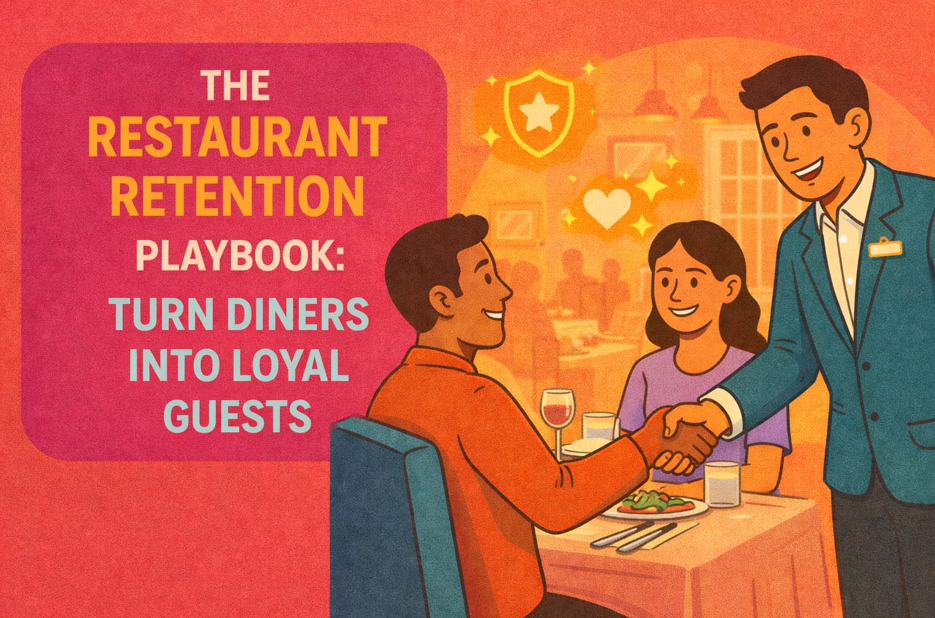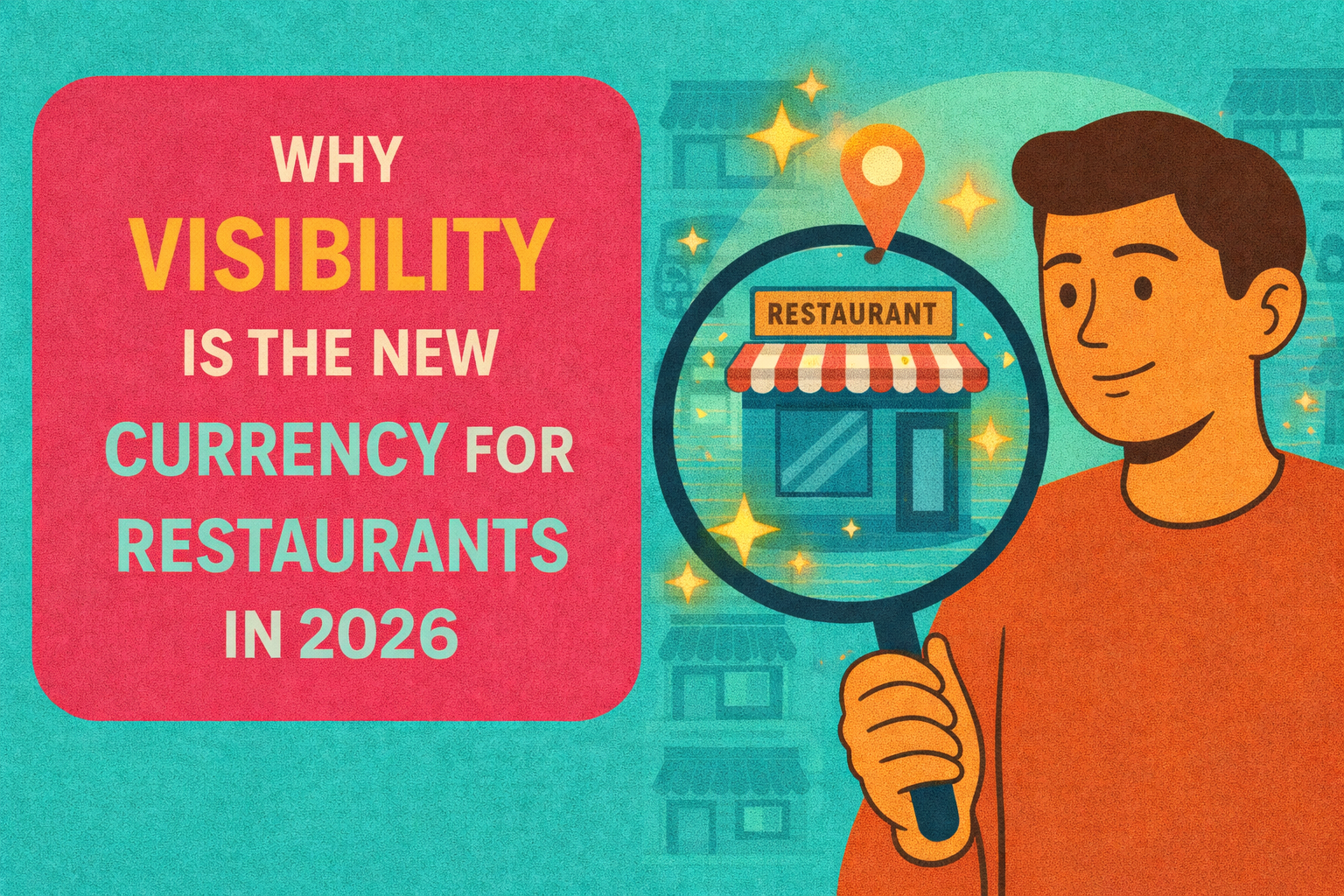In today’s digital-first world, your restaurant’s website is more than just an online menu—it’s a powerful marketing tool that can attract customers, drive online orders, and boost table reservations. A well-optimized website ensures that potential diners find you easily, explore your offerings, and make a booking without hassle.
But how do you design a restaurant website that converts visitors into loyal customers? This guide will walk you through 10 essential elements that can help you build a high-converting restaurant website, with Indian market insights and tools to give you a competitive edge.
Why Your Restaurant Needs a High-Converting Website
Before diving into the essentials, here’s why a great website is non-negotiable for modern restaurants:
- Increases Online Visibility – Helps customers find you via Google Search and Google Maps.
- Drives More Bookings – An easy-to-use reservation system encourages online table bookings.
- Boosts Online Orders – Direct online ordering reduces reliance on third-party aggregators like Zomato and Swiggy.
- Builds Brand Trust – A professional and well-designed website enhances credibility and customer confidence.
10 Must-Have Features for a High-Converting Restaurant Website
1. Mobile-Friendly & Fast-Loading Website
With most Indians browsing on their smartphones, your restaurant’s website must be optimized for mobile and load quickly.
Best Practices:
- Use a responsive design that fits all screen sizes.
- Compress images and videos for fast loading speeds.
- Avoid clutter, auto-playing videos, or pop-ups that slow down performance.
Example: Bastian Mumbai
Tool Suggestion: Google PageSpeed Insights
2. High-Quality Food Images & Engaging Videos
Customers often “eat with their eyes first.” High-resolution food photography and behind-the-scenes videos can drive interest and engagement.
How to Use Visuals Effectively:
- Invest in a professional food photographer or use a high-end phone camera.
- Add a 360° virtual tour of your restaurant’s interior.
- Highlight customer-generated content such as social media reviews.
Tool Suggestion: Canva | Adobe Lightroom
3. SEO Optimization for Higher Google Rankings
Ranking higher in search engines helps you stay ahead of the competition.
Key SEO Strategies:
- Optimize your Google My Business profile with accurate hours, location, and images.
- Use keywords such as Best marketing agency for restaurants and Restaurant in [City] in your headings and content.
- Write compelling meta descriptions with CTAs.
- Create separate location pages for branches or cities.
Example: The Bombay Canteen
4. Easy Online Booking & Ordering System
A seamless booking and ordering system increases conversions and reduces drop-offs.
Must-Have Features:
- Integrate Zomato, Swiggy, OpenTable or your in-house reservation software.
- Offer one-click WhatsApp booking.
- Display live availability of tables or delivery slots.
Example: The Table Mumbai
5. Simple & Intuitive Navigation
If visitors can’t find what they’re looking for, they’ll leave. Make it easy.
Essential Pages to Include:
- Menu Page – A downloadable and mobile-optimized menu.
- Location & Hours – Google Maps embed with live directions.
- Contact Details – Click-to-call phone numbers, email, and WhatsApp.
- Special Events & Offers – Ongoing promotions or chef specials.
Pro Tip: Use a sticky navigation bar to make navigation accessible across all pages.
6. Social Media Integration for Maximum Engagement
Link your social platforms to your website to create a seamless brand experience.
Best Practices:
- Embed an Instagram feed showcasing daily specials or customer visits.
- Display social media reviews and influencer shoutouts.
- Offer share-based discounts or loyalty incentives.
Example: Social Offline
7. Engaging Storytelling & About Us Page
People connect with human stories. Use your About page to reflect your brand identity.
What to Include:
- The story behind your restaurant’s origin.
- The chef’s journey and culinary philosophy.
- A video introduction by the founder or owner.
Example: O Pedro Mumbai
8. Customer Reviews & Testimonials
Online reviews are one of the biggest decision drivers for new customers.
How to Showcase Reviews:
- Use a Google Reviews widget or embed TripAdvisor ratings.
- Include video testimonials from loyal customers.
- Provide incentives for guests to leave honest reviews.
Tool Suggestion: Trustpilot | Google Reviews Embed Plugin
9. Blog Section for SEO & Customer Engagement
A blog isn’t just for content—it boosts SEO and builds brand loyalty.
What to Blog About:
- Best food pairings and tips (e.g., Wine & Indian Food Pairings)
- Dining experiences (e.g., Planning the Perfect Date Night in Delhi)
- Behind-the-scenes content (e.g., Chef Diaries or Kitchen Secrets)
Example: The Bombay Canteen Blog
10. Secure Payment Gateway for Online Orders
Trust is key when it comes to online payments. Your checkout process must be secure and simple.
Best Practices:
- Enable UPI, Razorpay, Paytm, and card payment options.
- Offer COD and flexible pay-later services.
- Ensure your site has an SSL certificate (HTTPS).
Example: Dineout
Frequently Asked Questions (FAQs)
A basic website may cost ₹10,000–₹50,000. A high-end website with online ordering can cost ₹1,00,000–₹1,50,000 or more.
⦿ Wix & Squarespace: Easy drag-and-drop design
⦿ WordPress: Ideal for custom features and blogging
⦿ GloriaFood: Free ordering system built for restaurants
⦿ Use location-specific keywords like Best South Indian restaurant in Bangalore
⦿ Add alt text to all images and compress for speed
⦿ Get backlinks from local food bloggers and directories
Conclusion & Next Steps
A high-converting restaurant website is more than just a digital brochure—it’s your most powerful marketing asset. From mobile responsiveness and strong SEO to storytelling and reviews, every element should guide the visitor toward booking a table or placing an order.
If you need professional help in designing a website that increases your restaurant’s bookings and visibility, contact Mango Marketing today.









